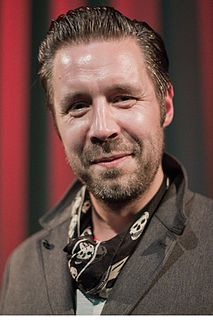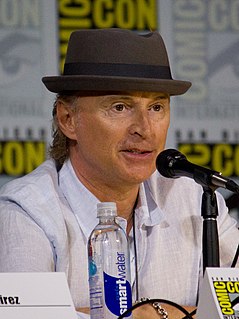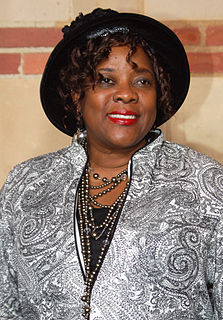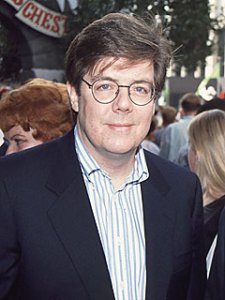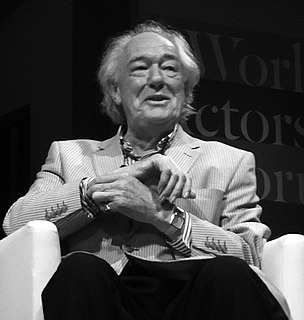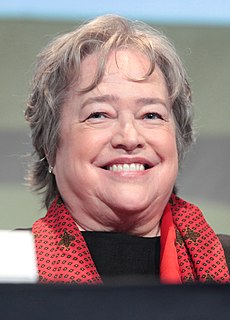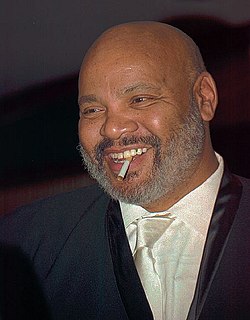A Quote by Ruth Negga
I know I've said it before in interviews, but the idea that all actors have their eye on some sort of prize - it being an Oscar, or fame, or whatever - not all actors I know are like that.
Related Quotes
The actor has to have some degree of craft, along with the talent. No one tries to laugh except bad actors. No one tries to cry except bad actors. How a character hides his feelings tells us who he is. Most people don't know that, and most actors don't do that. Therefore, there are a lot of actors who put me to sleep, that are considered good actors, but they're predictable and boring. I know how the scene is going to end before it ends.
With directors, some have a kind of in-built ability to just know how to work with actors and get the best out of actors, and some don't have a clue about acting. I think it'd be a good idea if directors put themselves in front of the camera, or even went on a six-week drama course, just to know a little bit about what that feels like.
I do extensive storyboards so people can get a sense of what we're doing, and what the attitude and tone is. I work a lot with the actors. I like to go to sets or locations with them before shooting so that they know what they'll be doing on the day. I have found actors really do like to know about blocking, etc., before the shoot day comes.
There are etiquette things that actors, new actors, need to know about. Because it only takes one mess-up on a set to get fired. Not being where you're supposed to be or saying something to the wrong person that you're not supposed to say, and those are like basic things that the actors need to know.
You work with every actor differently. It's like if you're a mother, if you have children, some children need more discipline. Other children you back off of a little bit and let them be. It's the same way with actors. Some actors need a lot of hand holding. Other actors like to be let be and you let them go. Some actors like to be nudged just a little bit. Some actors don't mind line readings.
I love actors. Part of that is my theater background and being a writer who cares about performance. Actors have usually chosen their profession because they have a dream of doing it and they want to express something about the world. That's the same thing that I have with writing. Most of the good actors get into it for those reason, rather than for reasons of fame or fortune, or anything like that, and that's where I'm coming from, as a storyteller.
I'm always so nervous when I have to do interviews or be on 'The Tonight Show' or the 'Oprah' show, where I have to be myself. I don't know why that's such a big deal - being yourself. But for some reason, I feel good in a dark room talking to actors about acting, doing acting. I like sitting backstage watching people work.
My true role is to get actors to understand what the camera is doing and what my intent is so they don't waste their good stuff on over-the-shoulder shots and wide shots. They need to know when we're going in to get something important, so they know to really go for it. No human being can give you 1,000 percent on every single take or shot, so you need to let them know what you're heading for. It's important that the actors know they're being looked after and being recorded in a way so they can do their best.
See, the thing that bothers me with young actors, young actors of color specifically, is that they see movies and television, and they figure that's all it is to it. They have no respect for the craft. They want to be, you know, movie stars or whatever. And I worry that we're losing a certain quality, you know?


